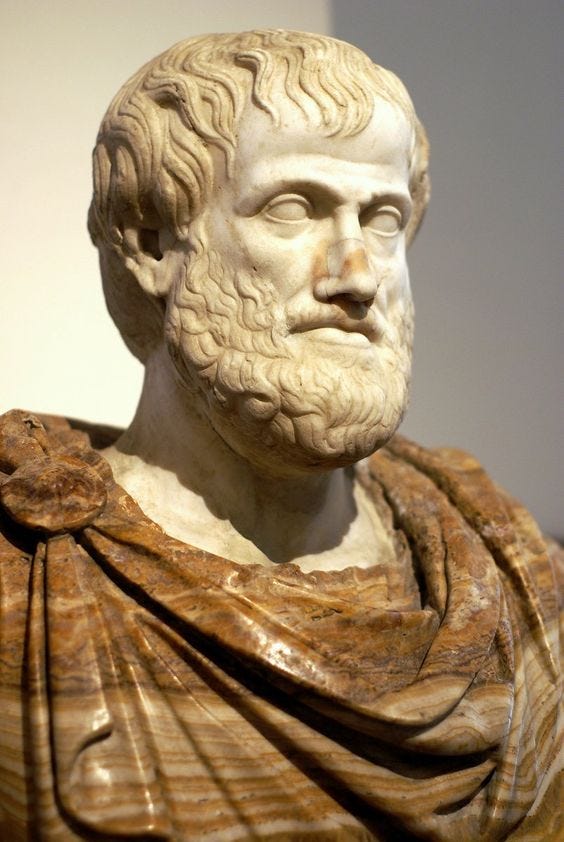Part 2: The Golden Mean in Aristotle's Theory of Virtue: Striking the Balance
Welcome back to our exploration of Aristotle's Theory of Virtue. In this installment, we delve into the concept of the golden mean, a central tenet of Aristotle's moral philosophy – and its profound implications for ethical conduct and personal development.
The Golden Mean
At the heart of Aristotle's Theory of Virtue lies the notion of the golden mean, a principle that advocates for moderation and balance in all things. According to Aristotle, virtue is not an absolute state but a dynamic equilibrium between extremes of deficiency and excess. Just as a skilled archer aims for the golden mean between overshooting and falling short, so too must individuals strive to find the virtuous mean in their actions and character traits.
Finding Balance
In the moral realm, the golden mean manifests as the middle path between two vices: deficiency and excess. Take courage, for example. A deficiency of courage leads to cowardice, while an excess of courage results in rashness or recklessness. True courage, according to Aristotle, lies in striking a balance between these extremes – neither shrinking from danger nor courting it unnecessarily but acting with prudence and resolve in the face of adversity.
Applying the Golden Mean
The concept of the golden mean extends beyond individual virtues to encompass all aspects of ethical conduct and decision-making. Whether in matters of justice, temperance, generosity, or friendship, Aristotle exhorts us to seek the virtuous mean and avoid the pitfalls of extremism. By cultivating habits of moderation and self-restraint, individuals can navigate life's complexities with grace and wisdom, fostering harmony within themselves and society at large.
Challenges and Considerations
While the golden mean offers a compelling framework for ethical deliberation, its application is not without challenges. Determining the precise midpoint between two extremes can be subjective and context-dependent, requiring careful judgment and moral discernment. Moreover, cultural norms, personal values, and situational factors may influence perceptions of what constitutes the virtuous mean, posing additional complexities in ethical decision-making.
Conclusion
As we reflect on Aristotle's concept of the golden mean, we are reminded of the timeless wisdom inherent in his Theory of Virtue. By embracing moderation, balance, and prudence in our actions and character, we can aspire to lead lives of moral excellence and personal fulfillment. In the pursuit of the golden mean, we discover not only the path to individual flourishing but also the essence of virtuous living in a world fraught with moral ambiguity and complexity.
Stay tuned for future explorations into the depths of Aristotle's philosophy and its enduring relevance to the human condition.




